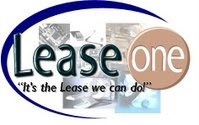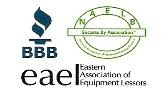
New data released by the bipartisan Tax Policy Center show that most small business owners won't be taxed at higher rates under Obama's proposed budget
New data released by the bipartisan Tax Policy Center show that most small business owners won't be taxed at higher rates under Obama's proposed budget
In the weeks since President Obama proposed rolling back federal income tax rates on the nation's top two marginal tax rates as part of his federal budget, the term "small business owner" has turned into a political football.
Proponents of the budget proposal claim that less than 3% of small business owners have net household income above $250,000, the threshold over which tax rates go up under Obama's plan. Budget opponents, on the other hand, claim that 15% or more of small business owners will be negatively affected, and at a time when many small companies are struggling.
What's the reality, and why is it so tough to parse? Confusion reigns for a number of reasons, among them the definition of "small business owner" and various methods for calculating taxable income. Wrap all that up with the charged language of politics and it's not surprising that conflicting claims are put forward, experts say.
Mom-and-Pop Misperception?
But tax analyses show that the percentage is likely to be on the lower side, and those taxed at higher rates—if the budget is approved as presented—are unlikely to be those most people think of when they hear "small business owner."
"Most small business owners aren't in the top two marginal tax rates. In my opinion, there's some misunderstanding in these political debates that the people who'll be affected are middle-income Americans who run mom-and-pop stores," says Benjamin Harris, senior research associate at the Tax Policy Center, a bipartisan venture of the Urban Institute and the Brookings Institution that aims to provide independent analyses of current and longer-term tax issues.
Mike Schenk, senior economist for the Credit Union National Assn., predicts that the tax increases will have a large negative impact, but only on a small number of small business owners. "I would ultimately conclude, as an economist, that on balance there are some real positives to come out of [the proposed budget]. The negatives will be apparent to a small sliver of the universe," he says.
Why only a small sliver? Because individuals who file IRS Schedules C, E, and F (which is how tax calculations are made about "small businesses") and are taxed at the two highest rates are likely to be investors and wealthy wage-earners, some of whom have income from small businesses, rental properties, or royalties, Harris says.
Projecting the Impact in 2012
So why invoke the "small business owner" in the debate? "It's easier to say these people who are getting hit by the proposed tax policy are small business owners," Harris says, than to fully describe the range of people in the category.
An analysis done by the Tax Policy Center shows that 8.9% of individuals who report small business income or loss (including self-employment income; income from S-corps, partnerships, and limited liability companies; farm income; and income from rental property and royalties), have household income greater than $250,000. But fewer than 2% of those filers fall into the top two tax brackets, according to the center's analysis.
New data the center released this week goes a step further, to show the projected impact in 2012 on individuals who report small business income and whose rates would be raised if Obama's budget is enacted as proposed. President George W. Bush reduced the top two tax rates, along with two lower rates, in 2001 and 2003. The rate reduction is scheduled to expire, and rates revert back to the higher figures of the 1990s, at the end of 2010. Obama’s budget proposes allowing the tax cuts to expire as scheduled, but only for families earning more than $250,000 per year or single filers earning more than $200,000 per year.
Under the Obama proposal, those currently taxed at 33% would be taxed at 36% and those taxed now at 35% would be taxed at 39.6%.
By 2012, individuals filing Schedules C, E, and F with "cash income" between $200,000 and $500,000 who are taxed at the top rates would face a -0.1% impact on their after-tax income, the data shows. The percent change in after-tax income would be -0.9% for those with cash income from $500,000 to $1 million, the center's projections show.
Those with small business income who have $1 million or more in "cash income" in 2012 would experience a 2.4% decrease in after-tax income if the tax hikes go through, according to the projections. "That would be considered a moderate or significant impact from one change in policy," but the changes on the lower two income groups would be considered small or negligible by tax experts, Harris says.
(The Tax Policy Center uses the "cash income" figure, which is similar to that used by the U.S. Treasury Dept. in its calculations. It includes wages and salaries, employee contributions to tax-deferred retirement savings plans business income or loss, farm income or loss, Schedule E income, interest income, taxable dividends, realized net capital gains, Social Security benefits received, unemployment compensation, energy assistance, temporary assistance to needy families, worker's compensation, veteran's benefits, SSI, child support, disability benefits, taxable IRA distributions, total pension income, alimony received, and other income, including foreign-earned income.)
Reinvestment Could Be Discouraged
The Tax Policy Center's projections also show that in 2012, 88.2% of filers with small business income or loss will report cash income of less than $200,000. Those who report cash income greater than $200,000 would be 11.8% of the total, according to the projections.
However, although the impact on what most people think of as small business owners may be small, tax hikes still have a disproportionately negative impact, says Olivier Garret. Garret is the CEO of Casey Research, an independent research organization whose main publication, The Casey Report, provides financial analysis for 25,000 mostly high-net-worth individuals, including small business owners.
He worries that higher tax rates on the country's most successful small business owners will discourage them from building cash reserves and reinvesting in their companies. "People think that someone making a million dollars is rich. But I know a lot of business owners who have reported income that is very high but they reinvest most of it and don't take that much home personally. They will be weakened dramatically by this change," he says.
Chas Roy-Chowdhury, head of taxation at the Assn. of Chartered Certified Accountants, questioned the timing of planning tax increases during a recession. "On the one hand, you're giving out stimulus packages and pumping money into the system, and then on the other hand doing tax rises," he says. "Are those the kind of messages we want to put out now?"
It's likely that the poor performance of many small businesses in recent months means that fewer entrepreneurs would be impacted by the tax increases. "Profits are a lagging indicator of the health of a business. It may take a while for many of them to be brought into the higher tax brackets," Roy-Chowdhury acknowledges. However, "I think it is just giving out the wrong message, in a climate where we're trying to get businesses to spend. If they know that over the horizon they'll be paying more tax, why would they spend as much?"
Adding to an Already High Tax Burden?
The proposed tax rate increases would go into effect in calendar year 2011 and show up on tax returns filed in 2012, Harris says. "There's a several-year lag before they'd be raised," he says. He notes that wealthier taxpayers tend to be savvier on issues like timing of income to minimize tax liability. "An announced tax increase in the future has an effect today," he says, "but if in 2010 we're still in a rough patch with the economy, the increases would likely be revisited."
Brad Hall, a CPA based in Newport Beach, Calif., whose clients include many successful small business owners, says he objects to the disproportionate tax burden in general. In 2006, the most recent year for which tax statistics have been released by the IRS, 3.8% of the total individual tax returns filed reported adjusted gross income of $200,000 or greater, he says. "That same 3.8% paid 50.6% of the total taxes that the government brought in that year. Those making over $500,000 AGI are less than 1% of the population, yet they contribute 35% of the total U.S. tax," he says. "That burden they're already carrying is quite high. To raise the tax on that 3.8% of the population or that 1% doesn't seem fair."
Hall shares the concerns about small business reinvestment being discouraged by higher tax rates. "People think that if small business owners make more than $250,000 they're actually taking that much out of the company, when in reality they are putting a good chunk of their income back into the business as additional working capital," he says.
A larger objection to the new tax policy is that it represents yet another complicated change that small businesses must keep track of. Rudy Penner, an institute fellow of the Tax Policy Center, says now is the time to reform the U.S. taxation system, making it more efficient and equitable. "There's never been a more propitious time to do that, considering that we have to do something about the [alternative minimum tax], we're reconsidering the Bush tax cuts, and we have a corporate tax that is really in extreme trouble," he says.
Karen E. Klein is a Los Angeles-based writer who covers entrepreneurship and small-business issues

